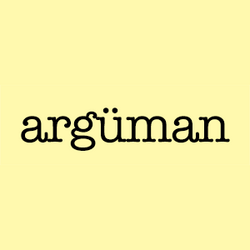Software:Argüman
 | |
| Repository | github |
|---|---|
| Written in | Python / Django[1] |
| License | The license appears to be the GNU General Public License |
Argüman is a free and open source software for collective structured argumentation and argument analysis via argumentation graphs or argument maps in which the type of connections can be specified.[2][3][4][5][6] It allows users to create collaborative "semantic maps" of arguments in well structured tree formats and share them with an audience and potential participants.[7][3][8] Arguman.org was an open structured social debate platform that implemented the software.[9] It is down as of 2023. There also is a mobile version of the tool. The project was started, in 2014, and largely built by developers in Turkey.[1]
File:Gource visualization video of Argüman development, an argument map software (sped-up).webm Some studies used or investigated excerpts of argumentations on the platform.[10][11] Unlike the larger and functional alternative Kialo, which is structured using only 'Pro' and 'Con' relations,[2] argüman arguments are structured by three types of premises – 'because', 'but', and 'however'.[3] As of the latest version, debates are presented in their entirety as a large tree which may be harder to navigate than other formats – for instance, trees "can become extremely dense, and the interface does not make it obvious which arguments the user should pay attention to".[2] Users can also flag arguments for fallacies. Arguman.org also had a Turkish-language subdomain.[12]
A researcher suggested the concept of the Semantic Web-interoperability could be useful for argumentative structures on the Web, going beyond the conventional flat structures of discussions and lack of characterizations of their components as implemented in argüman.[13] There is research into how to automatically use these collaborative argumentation graphs, which is a "very active" topic in Artificial Intelligence.[4] There also is research into applying conclusion-making methods to the debates or their data such as bipolar weighted argumentation frameworks – this could be a way to find out what the current conclusion of debates like "Computer Science is not actually a science" is.[14] A study suggests it could be useful for the development of critical thinking skills.[15]
See also
References
- ↑ Jump up to: 1.0 1.1 "AMENDMENT: Arguman.org" (in en). https://archive.fosdem.org/2016/schedule/event/arguman/.
- ↑ Jump up to: 2.0 2.1 2.2 Yuan, An (2018). Collective debate (Thesis). Massachusetts Institute of Technology. pp. 19–22. hdl:1721.1/122893. Retrieved 13 June 2023.
- ↑ Jump up to: 3.0 3.1 3.2 Pührer, Jörg (2017). "ArgueApply: A Mobile App for Argumentation" (in en). Logic Programming and Nonmonotonic Reasoning. Lecture Notes in Computer Science. 10377. Springer International Publishing. pp. 250–262. doi:10.1007/978-3-319-61660-5_23. ISBN 978-3-319-61659-9.
- ↑ Jump up to: 4.0 4.1 "Argumentation Ranking Semantics based on Propagation". https://www.researchgate.net/publication/316856422.
- ↑ Gargouri, Anis; Konieczny, Sébastien; Marquis, Pierre; Vesic, Srdjan (3 May 2021). "On a Notion of Monotonic Support for Bipolar Argumentation Frameworks" (in en). Proceedings of the 20th International Conference on Autonomous Agents and MultiAgent Systems (International Foundation for Autonomous Agents and Multiagent Systems): 546–554. https://hal.science/hal-03225627/.
- ↑ Jeuris, Steven (2018). "Socratrees: Exploring the Design of Argument Technology for Layman Users". p. 5. arXiv:1812.04478 [cs.HC].
- ↑ Antonio, Cordón García, José (1 January 2018) (in es). Lectura, sociedad y redes: Colaboración, visibilidad y recomendación en el ecosistema del libro. Marcial Pons. p. 129. ISBN 978-84-9123-626-9. https://books.google.com/books?id=BPrVDwAAQBAJ&pg=PA129.
- ↑ "Argüman – About". https://en.arguman.org/about.
- ↑ Benetos, Kalliopi (2023). "Digital Tools for Written Argumentation" (in en). Digital Writing Technologies in Higher Education: Theory, Research, and Practice (Springer International Publishing): 81–99. doi:10.1007/978-3-031-36033-6_6. ISBN 978-3-031-36032-9.
- ↑ "Gradual Semantics Accounting for Similarity between Arguments". Proceedings of the Sixteenth International Conference on Principles of Knowledge Representation and Reasoning: 1–2. https://cdn.aaai.org/ocs/18077/18077-78629-1-PB.pdf.
- ↑ Hoffmann, Michael H. G. (1 June 2018). "The Elusive Notion of "Argument Quality"" (in en). Argumentation 32 (2): 213–240. doi:10.1007/s10503-017-9442-x. ISSN 1572-8374.
- ↑ Uzelgun, Mehmet Ali; Kucukural, Onder; Oruc, Raluni (2020). Four Approaches in Argumentation Analysis. pp. 265–297. doi:10.26650/CONNECTIST2020-0666. https://run.unl.pt/handle/10362/116025. Retrieved 9 September 2023.
- ↑ Vetere, Guido (30 June 2018). "L'impossibile necessità delle piattaforme sociali decentralizzate". DigitCult - Scientific Journal on Digital Cultures 3 (1): 41–50. doi:10.4399/97888255159096.
- ↑ Delobelle, Jérôme (12 December 2017). Ranking-based Semantics for Abstract Argumentation (phdthesis). Université d'Artois.
- ↑ "Bir Eleştirel Düşünme Çevrimiçi Aracı Olarak Arguman.org". https://inet-tr.org.tr/inetconf20/bildiri/62.pdf.
External links
 |


